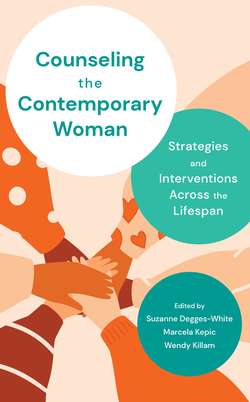Читать книгу Counseling the Contemporary Woman - Suzanne Degges-White - Страница 59
На сайте Литреса книга снята с продажи.
Relationships with Parents
ОглавлениеParents continue to play a crucial role in their children’s lives as they enter adolescence and emerging adulthood. Parents’ involvement in their children’s lives is crucial to healthy development during puberty and the use of an authoritative parenting style (e.g., high in responsiveness and high in demandingness) has been linked to higher academic achievement (Ahuja & Goyal, 2006) and higher levels of self-esteem, self-confidence, self-control, and social adjustment (Broderick & Blewitt, 2014).
Despite the fact that adolescents will strive for independence and autonomy and prefer their peers over their parents, it is clearly beneficial for parents or caretakers to stay involved in appropriate ways. The harder parents try to restrain their adolescent daughters, the harder many might struggle against their parents’ efforts to control them. When young women feel that their autonomy-seeking behaviors are being threatened, they may try to assert their independence. Therefore, they may choose to engage in unmonitored activities with peers in which they may encounter more opportunities for risky behaviors (Tilton Weaver et al., 2010). Other researchers have suggested that a link exists between parental restrictive behaviors and adolescent girls’ relational aggression (Centifanti, Fanti, Thomson, Demetriou, & Anastassiou-Hadjicharalambous, 2015). Longitudinal and cross-sectional studies of young and late adolescent girls reveal a negative correlation between parental promotions of autonomy and their daughters’ depressive symptoms (Soenens, Park, Vansteenkiste, & Mouratidis, 2012). This link has been found repeatedly across cultures. Clinicians working with adolescent girls and their families should communicate to parents that the greater the perception of their promotion of their daughter’s autonomy, the less likely she is to experience depressive symptoms (Manzi, Regalia, Pelucchi, & Fincham, 2012; Sheldon, Abad, & Omoile, 2009). Adolescence is a time when relationships with both parents may shift, and the changes in relationships with mothers are often quite different from those between daughters and their fathers.
